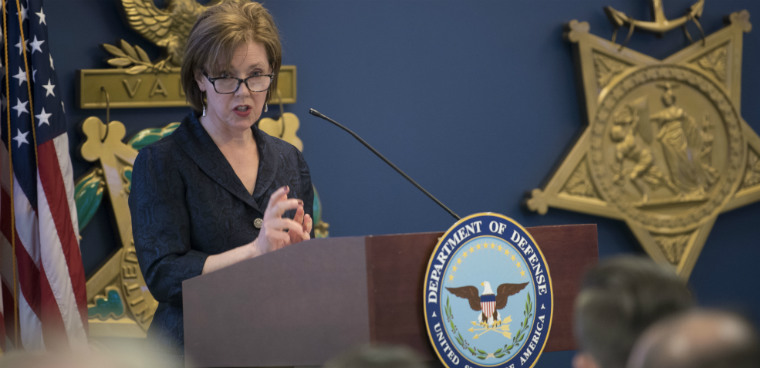Hershman critical of CMO cut in NDAA

Lisa Hershman, the Defense Department's outgoing chief management officer, said the office succeeded -- finding a proclaimed $37 billion in savings -- despite inadequate funding.

Congress eliminated the position of the chief management officer in the 2021 defense policy bill passed into law over the president's veto last week. But the outgoing CMO, Lisa Hershman, said the move raises concerns for the Defense Department going forward.
"We succeeded despite the fact that we never had a charter, we never had funding for this and were still able to put five times the amount of savings in under three years that others couldn't achieve in 10," Hershman said in a Jan. 3 interview on the Government Matters public affairs program. "They just stopped paying attention to the trajectory and the validated results."
The CMO, positioned as the third ranking official at DOD, has boasted $37 billion in savings across the department, including the services and defense support agencies, since its inception in 2018, but was also a topic of congressional debate.
The Government Accountability Office reported in November that lack of consistent leadership could stymie DOD's reform efforts, while also noting the lack of defined roles and responsibilities, inconsistent definitions of what constitutes reform, and difficulties exercising authority over the military services and defense agencies.
Hershman said she's focused on closing out her tenure with $6.2 billion in reform savings for fiscal year 2022 without significant budget cuts before leaving office later this month, but worries a dispersed structure could impede and disrupt ongoing reform efforts with the dissolution of the office and reassignment of duties slated to take place over the next year and the future structure in flux with an incoming administration.
"I am deeply concerned about the construct that has been put forward primarily because it has proven to have failed in the past. A lesser role with lesser authority had a run for 10 years and could only produce about $7 billion across those 10 years," Hershman said.
Hershman said the office's success was due to taking private sector expertise and that widespread reform can't be done without having the authority of being at least third in line behind the defense secretary.
"Look reform is hard and you have to make some tough decisions and if you don't have the authority behind it, it's not going to happen," Hershman said.
Hershman said there's an opportunity to do that to keep the authority, but call it something different, such as having two deputy defense secretaries with one focusing on operations and reforms.
"There is this divide or this gap between what's expected and yet what's put in place," she said.



